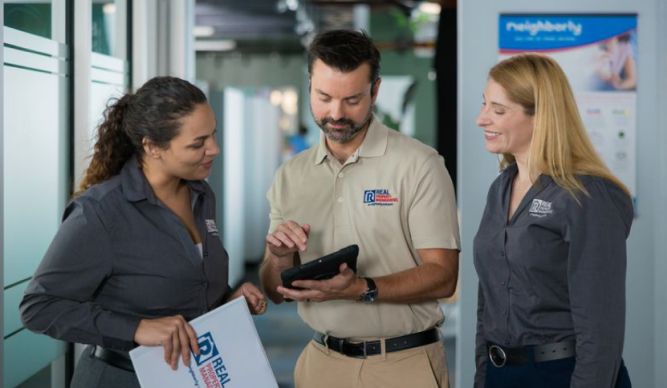
Are you thinking about running your own franchise? You’ll need to have a firm grasp of the operation’s overall finances to make an informed decision.
But, what are the costs associated with operating a franchise, exactly? In this blog, we’ll guide you through various expenses you might not have considered yet. From the initial investment and ongoing fees to factors that could hike up the cost, we’ve got you covered.
Here, our aim is simple. Help you understand the financial commitment of franchising and how to manage it effectively. From less costly options to the pricier ones, we assist everyone looking to enter the franchise arena.
Stick with us for a clear breakdown of all you need to know about managing your investment in franchising.
Franchise Start-Up Costs
So you’re interested in taking on a franchise and you’re wondering, “What are the costs associated with operating a franchise?” Well, starting a franchise can require different amounts of money, from hundreds to millions, but it’s possible to begin with as little as $10,000.
This initial investment can cover various fees essential to get your franchise up and running. These typically include the franchise fee itself, which grants you the license to operate under the brand, along with costs for equipment, initial inventory, and sometimes a real estate lease.
Keep in mind, expenses can vary widely based on the franchise type and size. For example, opening a fast-food franchise often costs more due to the specific equipment and interior design standards.
On the other hand, a home-based or mobile franchise might cost less initially since it usually requires fewer materials and less space.
What Are the Costs Associated With Operating a Franchise?
When you launch a franchise, beyond the initial fee to the franchisor, other significant expenses come into play. Here’s what you should consider:
Staffing Expenses
Staff salaries often represent a substantial portion of ongoing expenses. For example, a retail franchise might need cashiers, salespeople, and a manager. In contrast, a service-based franchise such as a cleaning business might have lower staffing costs but will still need to compensate workers fairly for their time and labor.
Equipment and Inventory
Operational tools and inventory are critical for daily business functions. A coffee shop needs espresso machines and beans, while a print shop requires high-quality printers and paper. Equipment can be costly upfront and might also need regular maintenance or replacement.
Real Estate and Utilities
Renting a space is another major cost. This varies widely depending on location. A franchise in a bustling city center will likely pay more for rent than one in a suburban area. Utilities like electricity, water, and internet also add to monthly expenses. Each can fluctuate based on usage, which in turn depends on your operation size and type.
Marketing and Advertising
Many franchises are required to spend a certain percentage of their revenue on marketing. This includes local advertisements, promotions, and participation in national campaigns organized by the franchisor. Effective marketing drives customers to your business but also demands a significant budget.
Licensing and Insurance
Wondering what are the costs associated with operating a franchise? Well, licensing fees can also impact your budget. Every franchise needs some form of business license, and some may require additional permits, especially in food service or childcare. Insurance is another non-negotiable expense, protecting the business against liability and property damage claims.
How To Reduce Your Franchising Costs?
Is your budget feeling tight as you dream of owning a franchise? You’re not alone, but there are several ways to manage and reduce the costs involved in franchising.
Choose the Right Franchise
Selecting a franchise that matches your budget from the start is crucial. Look for franchise opportunities with lower initial fees and flexible royalty arrangements. At America’s Best Franchises, we have a range of franchise options available that can fit, whether your budget is too small or too big. Some franchises also offer financing options or scaled fees based on performance, which can ease the initial financial burden.
Minimize Location Costs
The location cost can significantly impact your overall expenses. Consider less expensive areas or smaller spaces that still target your audience effectively. Sometimes, a location just outside a prime area can offer considerable savings. Regularly reviewing and renegotiating your lease terms can also prevent costs from ballooning.
Streamline Staffing
Effective labor management can cut costs significantly. Hiring the right amount of staff, minimizing overtime, and cross-training employees to perform multiple roles can lead to more efficient operations. Implementing automated systems for scheduling and payroll can reduce administrative costs and limit errors.
Implement Cost-Effective Marketing
Digital marketing can be a powerful tool for reaching a wide audience at a lower cost than traditional advertising methods. Utilize social media platforms and email marketing to engage customers directly. Investing in a good online presence can also drive customer engagement without the hefty price tag of physical ads.
Reduce Equipment and Supply Expenses
Opt for second-hand or leased equipment to decrease upfront costs. Negotiate with suppliers for bulk purchase discounts or better payment terms, leveraging the purchasing power of the franchise brand.
Focus on Energy Efficiency
Adopting energy-efficient practices not only reduces utility bills but also appeals to environmentally conscious consumers. Upgrade to LED lighting, energy-efficient appliances, and smart thermostats to cut down on energy consumption.
Train and Retain Staff
Investing in comprehensive training programs enhances employee skills and efficiency, which can reduce mistakes and increase productivity. Higher staff retention reduces the costs associated with high turnover, such as recruiting and training new employees.
Key Considerations for Starting a Franchise on a Budget
So, you have the budget ready for a franchise, but are you truly prepared for what’s ahead? Knowing what are the costs associated with operating a franchise is just the beginning. Here’s what to consider to ensure you can sustain your investment over the long haul.
Tip #1: Evaluate Long-term Commitment
Operating a franchise requires a commitment that goes beyond financial investment. Assess whether you can see yourself in this business for many years. Your passion and dedication are crucial, especially during challenging periods.
Tip #2: Understand Your Role
Realize that running a franchise means more than just overseeing operations. You will also need to be involved in day-to-day activities such as hiring staff, managing inventory, and customer service. Are you ready to wear multiple hats?
Tip #3: Analyze Market Conditions
Consider the market demand for the franchise’s products or services in your chosen location. Research local competitors and market saturation to ensure there is a potential customer base for your business to thrive long-term.
Tip #4: Financial Planning
While you might start with a sufficient budget, ongoing costs like rent, supplies, marketing, and royalties can add up. Create a detailed business plan that includes financial projections and budgeting for unexpected expenses. This plan will help you stay on track and manage finances efficiently.
Tip #5: Learn the Legal and Regulatory Compliance
Understand all legal requirements involved in operating a franchise. This includes franchise agreements, local business licenses, and regulations specific to the industry you’re entering. Non-compliance can lead to hefty fines and jeopardize your business.
Tip #6: Improve on Training and Support
Take advantage of training programs offered by the franchisor. These programs are designed to prepare you for success by providing the necessary skills and knowledge to operate your franchise effectively. Continuous learning and adapting will help you manage your business better.
Tip #7: Build a Support Network
Connect with other franchisees within the brand and engage in forums or networks. Learning from their experiences and advice can provide insights and strategies for overcoming common challenges and improving your operations.
Tip #8: Ensure To Understand Personal Stress Management
Lastly, consider your personal capacity to handle stress. Running a franchise can be demanding. Good stress management skills and a solid support system are essential to maintaining both your personal well-being and business health.
Find the Right Franchise at America’s Best Franchises
If figuring out where to start in your franchising journey seems overwhelming, America’s Best Franchises is here to guide you.
Choosing the right franchise is crucial to success, and your budget plays a key role in this decision. We specialize in matching prospective franchisees with options that align with your financial means and business goals.
Pick the best franchise for yourself from our carefully selected list of franchise options. From $10,000 to millions of dollars, we have the right franchise for your budget at America’s Best Franchises.
Our team believes in empowering our clients by providing clear, actionable information and support throughout the decision-making process. Let us help you find a franchise that not only fits your budget but also positions you for long-term success.


